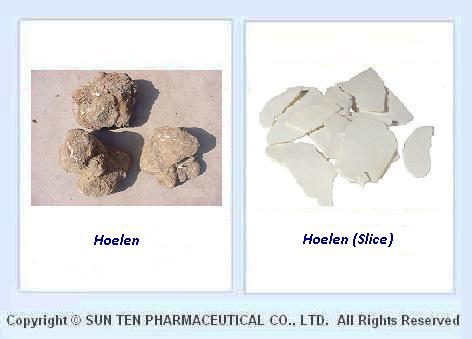Hoelen (Poria; Fu Ling)
TCM Herbal Story
Hoelen (Poria; Fu Ling)
Su Che, a family litterateur in the Northern Sung dynasty, had very poor health when he was young. He was constantly bothered with symptoms such as vomiting, diarrhea, flu, fever, and cough. Despite that he took medicine every other day, no significant improvement was noted on his health. By the time he was around 30, he not recovered from these chronic illness. To make the matter worse, he was troubled with additional new symptoms such as uneasiness, short of breath, and headache. Although he sought for medical advise from various places, his health still became poorer and poorer each year. Without making any progress by seeking medical advise elsewhere, Su Che decided to search for a cure by himself, and start to read medical books. With his intelligence and diligence, he had become familiar with the property of the herbal medicines recorded in “Shen Nong Ben Cao Jing”. He found that Fu Ling, a mild remedy that can calm and tonify the spirit, was the perfect medicine targeting his illness. Therefore, he started to take Fu Ling in a daily basis. Within less than a year, not only did the chronic sickness vanish miraculously, but his body build also got stronger! This incident was later recorded in his own writings, with the recommendation of taking Fu Ling to cure illness and prolong life to others. Poria is the fungus of Poria cocos (Schw.) Wolf. Its properties are sweet, bland, and neutral. It enters through the heart, spleen, and lung.
Actions & Indications: Caution & Contradiction The original article is from Brion Research Institute, translated by Sun Ten Pharmaceutical Co., Ltd. For Chinese/original version, please go to: http://www.brion.org.tw/index.php?option=com_content&task=view&id=2131&Itemid=22
